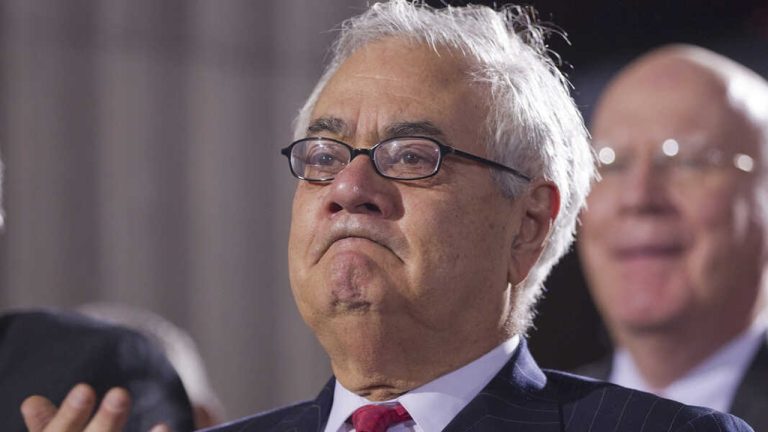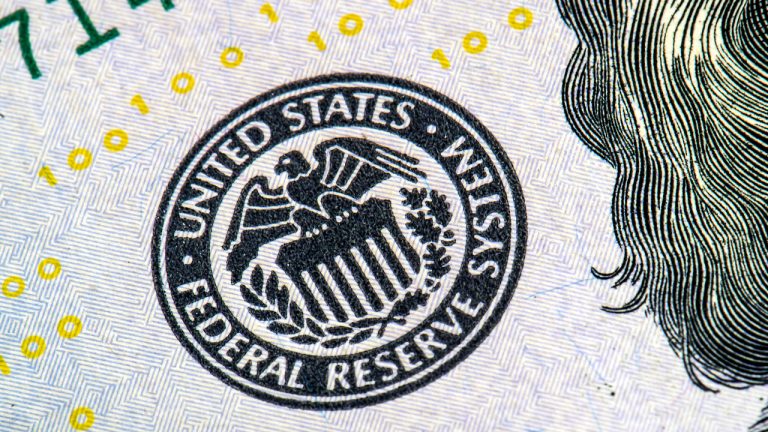 After the fall of Silvergate Bank, Silicon Valley Bank (SVB), and Signature Bank (SNBY), First Republic Bank, a commercial bank and wealth management services provider, is the latest financial institution to receive a bailout. Close to a dozen lenders announced they will deposit $30 billion into the beleaguered bank’s coffers to shore up liquidity. U.S. […]
After the fall of Silvergate Bank, Silicon Valley Bank (SVB), and Signature Bank (SNBY), First Republic Bank, a commercial bank and wealth management services provider, is the latest financial institution to receive a bailout. Close to a dozen lenders announced they will deposit $30 billion into the beleaguered bank’s coffers to shore up liquidity. U.S. […]
The fire lit by Silvergate Bank and Silicon Valley Bank will make it harder for crypto to find financial partners.
The collapse of Silicon Valley Bank (SVB) and Silvergate Capital, some of the most crypto-friendly banks in the industry, has forced many crypto firms to hold their breath. The loss of a significant banking partner for many companies means it will be even harder for them to comply with regulations and offer their services in a way that is consistent with the expectations of the United States Securities and Exchange Commission.
In the aftermath of the banks’ collapse, the second-most liquid U.S.-dollar pegged stablecoin, USD Coin (USDC), temporarily lost its peg and fell below $0.87, as its issuer, Circle, admitted that it held $3.3 billion at SVB. Within the crypto industry, Circle is one of the better-known, “mature” players, so the news understandably shook investors, forcing many to lose their confidence in cryptocurrencies once again.
It is obvious that the collapse of SVB and Silvergate has and will continue to challenge the crypto industry as a whole. In addition to that, it has also created uncertainty as banking partnerships are crucial for the infrastructure that enables crypto companies to operate.
This is especially evident with stablecoins like USDC that rely on banking partnerships to ensure their value is pegged to the U.S. dollar. But what does the collapse of a banking partner mean for the future of stablecoins and the overall crypto industry?
Related: Blame traditional finance for the collapse of Silicon Valley Bank
In general, a collapse such as this can cause instability in the value of a stablecoin because of how dependent they are on real-life assets. However, in the long run, a situation like this could also put pressure on other major crypto players like Bitcoin (BTC) and Ether (ETH), which were down almost 10% in the aftermath, with concerns growing over a potential liquidity shortage for the industry.
To top it all off, the collapse of SVB and Silvergate has also brought other banks to a halt, making them less likely to endorse new relationships with the crypto industry. This could make it more challenging for crypto companies to find stable banking partners in the future.
It's clear the Biden administration is weaponizing market chaos to kill crypto.
— Tom Emmer (@GOPMajorityWhip) March 16, 2023
This is why I sent an investigative letter to FDIC Chairman Gruenberg seeking additional information yesterday. pic.twitter.com/oPr3WLZtk3
In essence, this whole situation creates a falling domino effect: When a major player in the center of a spiral that holds the group together starts to wobble (in this case, it was SVB and Silvergate), the rest of the construction will follow suit once that central piece has fallen to the ground.
The uncertainty and uneasiness that followed the collapse of both SVB and Silvergate are likely to have a knock-on effect on investor confidence, adoption and growth, which are essential aspects in the further mass adoption of cryptocurrencies. In addition, without a stable banking partner, crypto companies may struggle to comply with regulations, which has already been a key hurdle for many crypto firms. In the end, crypto companies will not be able to offer their services in a consistent manner, leading to their total downfall.
Related: Why isn’t the Federal Reserve requiring banks to hold depositors’ cash?
What has also not been helpful in this situation is the fact that the SEC has been out to get crypto firms for a long time. SVB and Silvergate’s collapse means crypto firms will now be more vulnerable to increased scrutiny from regulators regarding their reliance on stablecoins and banking partnerships. In addition, this will also bring up wider implications for the traditional banking industry’s relationship with the crypto industry.
Why?
Because as the crypto industry continues to grow, traditional banks may be forced to reassess their relationships with crypto companies and the risks associated with those relationships.
In the U.S., it seems the government is actively trying to cease any crypto operations by going against crypto companies and banks and trying everything in its power to shut them down. While this was not proven by anyone yet, speculations within the wider crypto community continue to arise, with a number of crypto firms looking for bank partnerships outside American shores.
While the crypto community has managed to regain most of its losses since the bank collapses, the aftermath lingers as a reminder of the challenges the industry faces in the weeks and maybe even months to come.
This article is for general information purposes and is not intended to be and should not be taken as legal or investment advice. The views, thoughts and opinions expressed here are the author’s alone and do not necessarily reflect or represent the views and opinions of Cointelegraph.

It's unclear whether Anchorage Digital’s layoffs relate to the current turmoil in the U.S. banking sector.
Crypto bank Anchorage Digital announced it would be letting go of 75 employees, representing approximately 20% of its workforce, citing regulatory uncertainty in the United States as a factor in its decision.
In a March 14 statement labeled the layoffs as “a strategic realignment to better focus our resources,” and pointed to “broad macroeconomic challenges, and crypto market volatility” as other factors contributing to its shift in strategy.
It said the market conditions had boosted demand for its product and client assets under custody "are at an all-time high," but added:
"These same macroeconomic, market, and regulatory dynamics are creating headwinds for our business and the crypto industry.”
Anchorage — which became the first U.S.-based crypto firm to be granted a national trust bank charter from the Office of the Comptroller of the Currency in January 2021 — expressed continued confidence in the digital asset landscape and its ability to build “regulated solutions for digital asset holders.”
The layoffs come at a time when the banking system in the U.S. is in a state of disarray after three regional banks went under in just one week.
Related: Banks collapsing; stablecoins depegging — What is happening? Watch The Market Report live
Silicon Valley Bank (SVB), Silvergate Bank, and Signature Bank have all gone under since March 8, prompting the Federal Deposit Insurance Corporation (FDIC) to take the extraordinary step of guaranteeing all customer deposits in excess of the standard $250,000 it normally guarantees for SVB and Signature.
@federalreserve @USTreasury @FDICgov issue statement on actions to protect the U.S. economy by strengthening public confidence in our banking system, ensuring depositors' savings remain safe: https://t.co/YISeTdFPrO
— Federal Reserve (@federalreserve) March 12, 2023
It’s unclear if the recent developments regarding SVB, Signature, and Silvergate contributed to Anchorage’s decision to cut staff.
Anchorage did not immediately respond to Cointelegraph’s request for comment.
Layoffs within the crypto industry have considerably slowed since the beginning of the year after the nearly 3,000 positions cut by crypto firms such as crypto exchanges Coinbase and crypto.com in January were followed by a more muted 570 layoffs for February.
 After the failure of three major U.S. banks last week, with two of them being the second and third largest banking failures in the country, Moody’s Investors Service has downgraded the rating of the U.S. banking system from “stable” to “negative.” As one of the “Big Three” credit rating firms, Moody’s cited a “rapid deterioration […]
After the failure of three major U.S. banks last week, with two of them being the second and third largest banking failures in the country, Moody’s Investors Service has downgraded the rating of the U.S. banking system from “stable” to “negative.” As one of the “Big Three” credit rating firms, Moody’s cited a “rapid deterioration […]
BTC’s market cap has climbed to the 11th spot amongst top assets by market cap and now sits behind electric vehicle maker Tesla.
Despite a turbulent week for crypto following the downfall of Silicon Valley Bank (SVB) and Signature Bank, Bitcoin (BTC) market cap has managed to flip that of tech giant Meta.
At the time of writing, data from Companies Market Cap shows Bitcoin's market cap has reached $471.86 billion, surpassing that of Meta’s market cap of $469 billion.
Companies Market Cap provides real-time monitoring and ranking of market caps for cryptocurrencies, public companies, precious metals, and ETFs.

Only 24 hours earlier, BTC’s market cap was nearly $37 billion below Meta’s market cap, sitting at $433.49 billion compared to Meta’s market cap of $469 billion.
However, Bitcoin’s market cap rose 9.7% in the past 24 hours, pushing the cryptocurrency to sit in the 11th spot among top assets by market cap, just below electric vehicle maker Tesla.
On Feb. 20, Cointelegraph reported that BTC had flipped the market cap of payment processing giant Visa for the third time in history, putting it just ahead of the payments company.
Related: Bitcoin on-chain data highlights key similarities between the 2019 and 2023 BTC price rally
The gap between the two market caps is now more than $20 billion, though it still is quite a distance from Gold, which sits in first position with a $12.59 trillion market cap, followed by Apple in second place with a $2.380 trillion market cap.
BTC’s price has risen 8.72% in the past 24 hours, currently sitting at $24,441 USD.
 Barney Frank, a former member of the U.S. House of Representatives from Massachusetts and leading co-sponsor of the 2010 Dodd-Frank Act, discussed his opinion on the recent failure of Signature Bank. In an interview, Frank stated that he believes regulators aimed to “send a very strong anti-crypto message.” Frank, who also serves as a Signature […]
Barney Frank, a former member of the U.S. House of Representatives from Massachusetts and leading co-sponsor of the 2010 Dodd-Frank Act, discussed his opinion on the recent failure of Signature Bank. In an interview, Frank stated that he believes regulators aimed to “send a very strong anti-crypto message.” Frank, who also serves as a Signature […]
Prominent members of the crypto community have expressed uncertainty after the loss of crypto friendly banks.
Crypto companies could find it harder to access traditional banking partners with the loss of two major crypto-friendly banks in less than a week, according to some in the crypto community.
On March 12, the Federal Reserve announced the closure of Signature Bank as part of “decisive actions” to protect the U.S. economy, citing “systemic risk.” It came only days after the closure of Silicon Valley Bank, which was ordered to shut down on March 10.
A week prior, Silvergate Bank, another crypto-friendly bank, announced it would close its doors and voluntarily liquidate on March 8.
At least two of these banks were seen as important banking pillars for the crypto industry. According to insurance documents, Signature Bank had $88.6 billion in deposits as of Dec. 31.
Umm... so they shut down Signature bank...
— Lark Davis (@TheCryptoLark) March 13, 2023
Wasn't that like one of the last big banks working with #crypto companies?
Guys? Guys...
Crypto investor Scott Melker, also known as The Wolf Of All Streets, believes — like many others who took to Twitter following the news — that the collapse of the three banks will leave crypto companies “basically” without banking options.
“Silvergate, Silicon Valley and Signature all shuttered. Depositors will be made whole, but there’s basically nobody left to bank crypto companies in the US,” he said.
Silvergate, Silicon Valley and Signature all shuttered.
— The Wolf Of All Streets (@scottmelker) March 12, 2023
Depositors will be made whole, but there’s basically nobody left to bank crypto companies in the US.
Meltem Demirors, chief strategy officer of digital asset manager Coinshares, shared similar concerns on Twitter, highlighting that in just one week, “crypto in america has been unbanked.” She noted that SEN and SigNet “are the most challenging to replace.”
and just like that, crypto in america has been unbanked
— Meltem Demirors (@Melt_Dem) March 12, 2023
Silvergate. Silicon Valley Bank. Signature.
in one week pic.twitter.com/nWLDxdOAAA
The Silvergate Exchange Network (SEN) and Signature Bank’s “Signet” were real-time payment platforms that allowed commercial crypto clients to make real-time payments in dollars at any time.
Their loss could mean that “crypto liquidity could be somewhat impaired,” according to comments from Nic Carter of Castle Island Ventures in a March 12 CNBC report. He said that both Signet and SEN were key for firms to get fiat in, but hoped that other banks would step up to fill the void.
Others believe the closure of the three firms will create room for another bank to step up and fill the vacuum.
Jake Chervinsky, head of policy at crypto policy promoter the Blockchain Association, said the closure of the banks would create a “huge gap” in the market for crypto-friendy banking.
The closures of Silvergate, SVB, and Signature create a huge gap in the market for crypto-friendly banking.
— Jake Chervinsky (@jchervinsky) March 12, 2023
There are many banks that can seize this opportunity without taking on the same risks as these three.
The question is if banking regulators will try to stand in the way.
“There are many banks that can seize this opportunity without taking on the same risks as these three. The question is if banking regulators will try to stand in the way,” he added.
Meanwhile, others have suggested there are already viable alternatives out there.
This is false. United Texas Bank, Western Alliance Bank, JP Morgan Chase, and Bank of New York Mellon all have crypto businesses as customers, and there are probably more. https://t.co/Q27bkzq2n8
— yuga.eth (@yugacohler) March 13, 2023
Mike Bucella, General Partner at BlockTower Capital, told CNBC many in the industry are already changing to Mercury Bank and Axos Bank.
“Near-term, crypto banking in North America is a tough place,” he said.
“However there is a long tail of challenger banks that may take up that slack.”
Ryan Selkis, CEO of blockchain research firm Messari, noted the incidents have seen “Crypto’s banking rails” shuttered in less than a week, with a warning of the future for USDC.
“Next up, USDC. The message from DC is clear: crypto is not welcome here,” he said.
“The entire industry should be fighting like hell to protect and promote USDC from here on out. It's the last stand for crypto in the US,” Selkis added.
Crypto’s banking rails have been effectively shuttered in less than a week. Next up, USDC.
— Ryan Selkis (@twobitidiot) March 12, 2023
The message from DC is clear: crypto is not welcome here.
Circle, the issuer of the stablecoin USDC, confirmed on March 10 that wires initiated to move its balances at Silicon Valley Bank had not yet been processed, leaving $3.3 billion of its $40 billion USDC reserves at SV.
Related: Silicon Valley Bank collapse: Everything that’s happened until now
The news prompted USDC to waver against its peg, dropping below 90 cents at times on major exchanges.
However, as of March 13, USDC was climbing back to its $1 peg following confirmation from CEO Jeremy Allaire that its reserves are safe and the firm has new banking partners lined up.

United States President Joe Biden said on Twitter that he is “firmly committed” to holding those responsible for the Silicon Valley Bank and Signature Bank collapse “fully accountable.”
The president of the United States, Joe Biden, has vowed to hold those responsible for the failure of Silicon Valley Bank and Signature Bank while assuring Americans that their deposits are safe.
On March 12, the New York District of Financial Services took possession of Signature Bank. The Federal Reserve said that the crypto-friendly bank was closed to protect the U.S. economy and strengthen public confidence in the banking system.
The Fed also announced a $25 million fund aimed at backstopping certain banks that could face liquidity issues in the future.
Biden tweeted to his 29.9 million followers on March 13 that he’s pleased that the agencies have “reached a solution that protects workers, small businesses, taxpayers and our financial system.”
At my direction, @SecYellen and my National Economic Council Director worked with banking regulators to address problems at Silicon Valley Bank and Signature Bank.
— President Biden (@POTUS) March 13, 2023
I’m pleased they reached a solution that protects workers, small businesses, taxpayers, and our financial system. https://t.co/CxcdvLVP6l
The president added he was also “firmly committed” to holding those responsible for the mess “fully accountable.” He added that he would “have more to say” in an address on Monday, March 13.
Meanwhile, a host of other United States politicians have also shared praise over the recent federal regulator actions aimed at stemming contagion from the recent banking collapses.
U.S. Senator Sherrod Brown and Representative Maxine Waters said they were also pleased to see that both insured and uninsured SVB depositors would be covered, according to March 12 statement by the U.S. Senate Banking and Housing Committee:
“Today’s actions will enable workers to receive their paychecks and for small businesses to survive, while providing depository institutions with more liquidity options to weather the storm.”
“As we work to better understand all of the factors that contributed to the events of the last several days and how to strengthen guardrails for the largest banks, we urge financial regulators to ensure the banking system remains stable, strong, and resilient, and depositors’ money is safe,” the statement added.
Silicon Valley Bank depositors, both insured & uninsured, will be made whole by the plan from the FDIC, the Federal Reserve, the Treasury & the White House. And the Fed has created a new facility to support all banks that need liquidity to ensure our banking system is safe.
— Maxine Waters (@RepMaxineWaters) March 13, 2023
Meanwhile, U.S. Securities Exchange Commission Chairman Gary Gensler has used the moment to double down on his agency’s pursuit of wrongdoers, without naming any industries in particular.
The chairman reinforced that the SEC would be on the lookout for violators of U.S. securities laws in a March 12 statement:
“In times of increased volatility and uncertainty, we at the SEC are particularly focused on monitoring for market stability and identifying and prosecuting any form of misconduct that might threaten investors, capital formation, or the markets more broadly.”
“Without speaking to any individual entity or person, we will investigate and bring enforcement actions if we find violations of the federal securities laws,” the SEC chairman added.
The shuttering of SVB temporarily triggered the depegging of Circle's USD Coin (USDC) to as low as $0.88 on March 11, as $3.3 billion of Circle’s $40 billion USDC reserves are held by SVB.
However, USDC is nearly back at $1 after the Federal Reserve confirmed that all customer deposits at Signature Bank and SVB would be made in “whole.”
Related: US Fed announces $25B in funding to backstop banks
Another prominent crypto-bank, Silvergate Bank, announced last week that it would shut down and voluntarily liquidate “in light of recent industry and regulatory developments.”
Shortly after, Gensler wrote a March 9 opinion piece for The Hill that threatened U.S. crypto companies to “do their work within the bounds of the law” or be met with enforcement action.
As Chair of @SECGov, I have one goal with regard to the crypto markets: to ensure that investors and the markets receive all the protections that they would in any other securities market. How?
— Gary Gensler (@GaryGensler) March 9, 2023
Read my op-ed in @thehill:
 On Sunday, the New York Department of Financial Services, or DFS, announced that it had taken possession of Signature Bank. The DFS appointed the Federal Deposit Insurance Corporation, or FDIC, as the receiver of the bank. In a joint statement, the U.S. Federal Reserve, Treasury Department, and FDIC explained that all Signature depositors would be […]
On Sunday, the New York Department of Financial Services, or DFS, announced that it had taken possession of Signature Bank. The DFS appointed the Federal Deposit Insurance Corporation, or FDIC, as the receiver of the bank. In a joint statement, the U.S. Federal Reserve, Treasury Department, and FDIC explained that all Signature depositors would be […] It’s been a turbulent week in finance with the so-called crypto-friendly Silvergate Bank announcing its liquidation, U.S. Senator Elizabeth Warren blaming the event on “crypto risk,” and individuals on social media pointing out that Warren is “terribly misinformed.” Additionally, U.S. Regulators closed Silicon Valley Bank after reports of a bank run and other troubles. In […]
It’s been a turbulent week in finance with the so-called crypto-friendly Silvergate Bank announcing its liquidation, U.S. Senator Elizabeth Warren blaming the event on “crypto risk,” and individuals on social media pointing out that Warren is “terribly misinformed.” Additionally, U.S. Regulators closed Silicon Valley Bank after reports of a bank run and other troubles. In […]